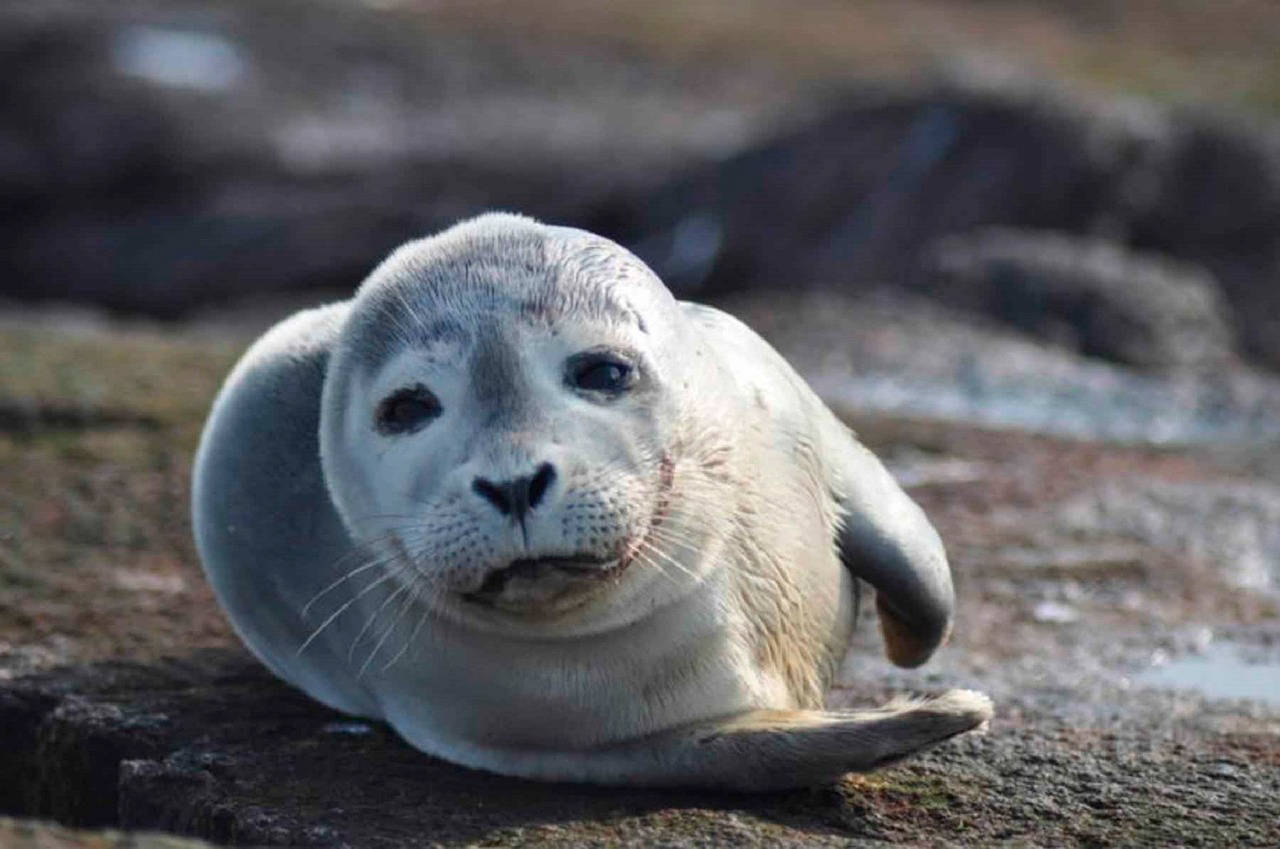Submitted by The Whale Museum
As residents prepare for the busy season in the San Juan Islands, The Whale Museum’s San Juan County Marine Mammal Stranding Network is also getting ready for the busy marine mammal stranding season.
Local residents and visitors can help us by following important precautions to ensure that our human activities do not negatively impact their well-being.
The islands are lucky to have one of the world’s healthiest stocks of harbor seals. From June—August, visitors can anticipate about 2,000 pups being born around the islands. Prematurely born harbor seal pups – easily distinguished by their fine, white fur – can be seen as early as May. Nursing pups remain with their mothers for 4-6 weeks and are then weaned to forage and survive on their own.
If you come across a harbor seal pup that is alone on the beach, the best thing you can do to maximize their survival is to keep your distance and stay at least 100 yards away. If the pup is being nursed by its mother, she is unlikely to come on shore if people or other disturbances are close by.
It is also possible to come across northern elephant seals molting on our shoreline. Molting seals may appear unhealthy as large patches of fur come off along with the top layer of skin; however, molting is a completely natural process that can take up to 4-6 weeks to complete. Hauling out on the shoreline warms up the skin and speeds up the process. They do not need food or water, nor does their skin need to be wet. This can be a very draining time period that puts the seal in a vulnerable position. Keep your distance, do not pour water on the animal and alert the stranding network.
Remember: disturbing, feeding or interfering with a marine mammal’s ability to hunt, feed, communicate, socialize, rest, breed or care for its young is considered harassment under the Marine Mammal Protection Act of 1972 and is punishable by a $10,000 fine by the NOAA Office of Law Enforcement. If you come across a marine mammal on shore, follow these guidelines: Do not touch or move it, do not feed it, do not pour water on it, do not try to force it back into the water, and maintain a 100-yard distance between you (and your dog) and the animal.
If you notice that the seal is sick, injured or is being harassed by humans, please call the Marine Mammal Stranding Network Hotline at 1-800-562-8832 or 1-866-767-6114.



